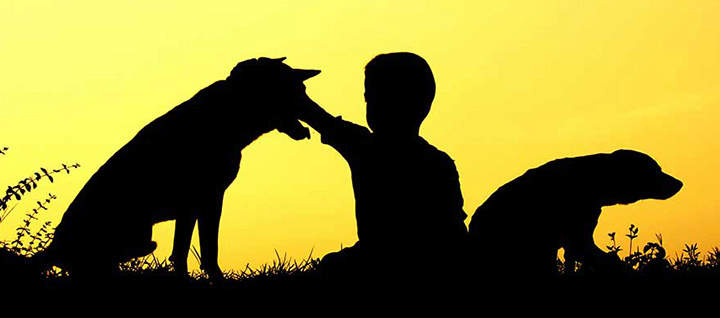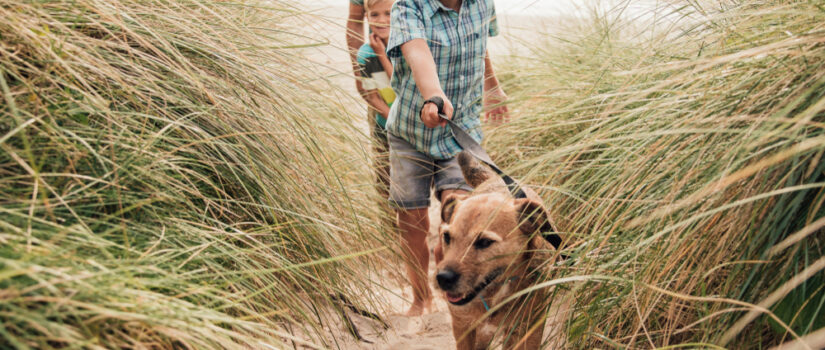Teaching Kids Responsibility Through Dogs

Long before Lassie and Timmy became an iconic duo, dogs and kids have always been natural companions. This relationship reaches far beyond merely “a boy and his dog,” however. In addition to the obvious benefits of companionship and love, pet dogs benefit children in ways that may surprise you.
Physical and Mental Health Benefits
Scientists have proven that having a dog in the family can help boost a toddler’s immune system. When toddlers are exposed to different germs, their bodies build immunities and fight off the germs, strengthening their immune system.
Dogs can also provide children with a boost in self-esteem. Studies show that dogs’ nonjudgmental ears and unconditional love give children added confidence. Dogs can even improve reading skills; their rapt attention and wagging tail encourage youngsters who read to their dogs.
First Lessons in Responsibility
The family dog can also teach children about responsibility. The daily feeding, exercising, grooming, and affection that all dogs require (and deserve) can teach children the importance of obligation and consistency, as well as an appreciation for the rewards that accompany responsible pet ownership.
Before your child participates in the daily care of the family dog, you need to set realistic, age-appropriate expectations. Children younger than age five should not be responsible for executing any pet-related tasks on their own, but they can “help” with feeding time and other chores and learn by observing. Your child can dry the dog’s dish after you wash it or help brush the dog by placing her hands over yours. When you ask her to put her own toys away at the end of the day, apply this routine for the dog’s toys as well.
Increasing Their Responsibilities
As kids mature, they can take on more active roles—still under adult supervision, of course. Good chores for kids ages ten and older include remembering pet mealtimes and properly serving the dog’s food, keeping the water bowl filled, cleaning up yard waste, and learning proper leash handling. And let’s not forget the all-important obligation of sharing plenty of affection and quality time with the dog!
Supervise your child until you’re confident enough in her capabilities to allow her to perform tasks on her own. Regard dog duty as a privilege instead of a chore, and your child will eagerly take on the responsibility.
The lessons that children can learn from a dog will serve them well in life. They will learn about compassion, respect, trust, and ultimately bereavement. However, you should not consider getting a dog for the sole purpose of instructing your children. A dog should enrich the family unit, not serve as a teaching tool. You should add a dog to your home to love him and provide him with a safe, comfortable, and happy life as a cherished family member. The rest is just a bonus.
Source: https://www.nylabone.com/dog101/teaching-kids-responsibility-through-dogs

